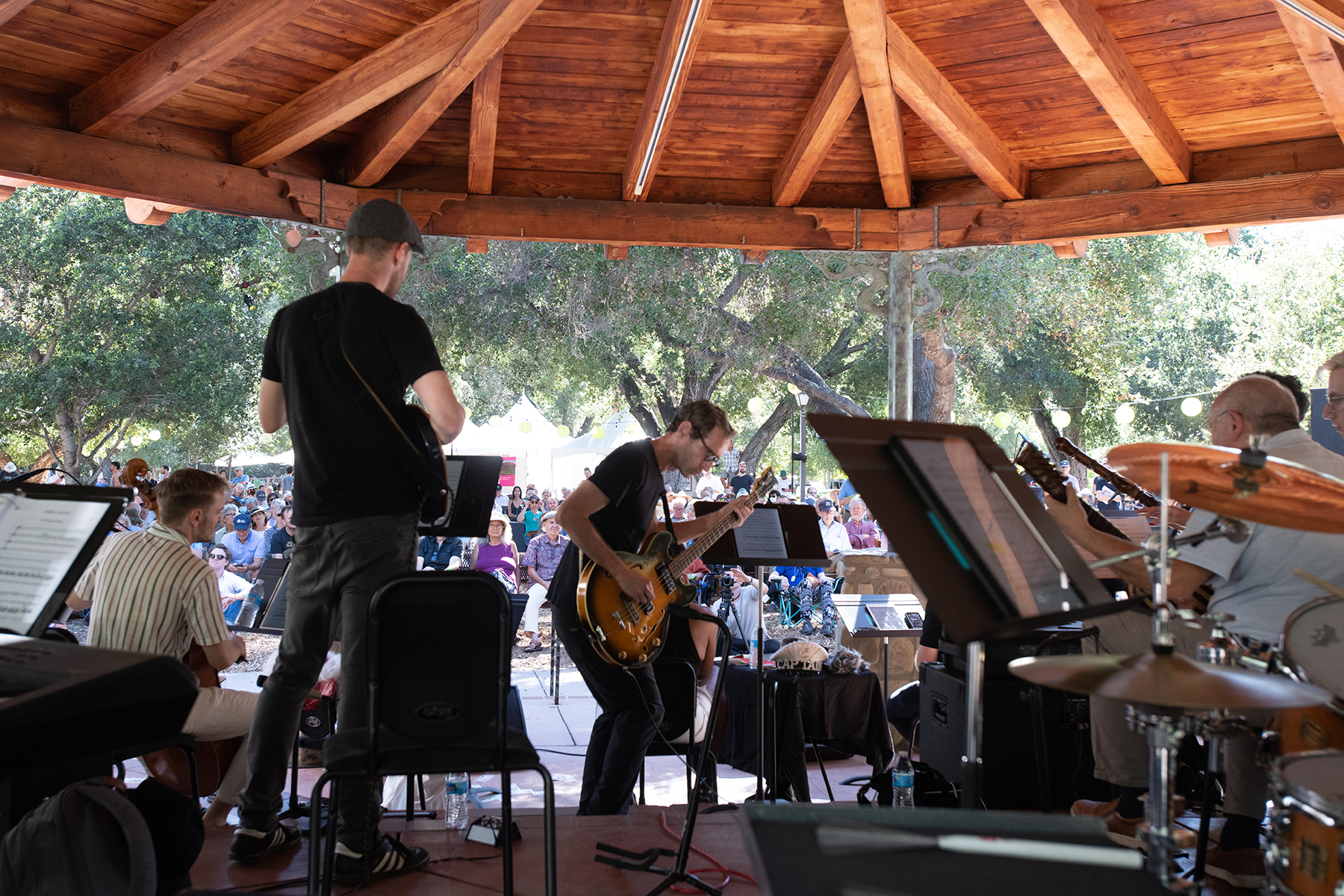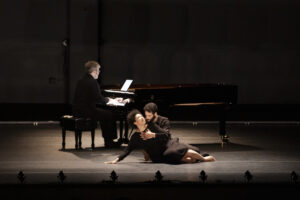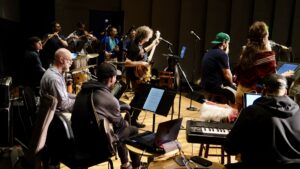
On the Ojai Music Festival
By Alex Ross
6/27/2022 The New Yorker
Audiences at the Ojai Music Festival, the Southern California new-music jamboree, are accustomed to unpredictable goings on, but this year’s edition may have caught even veteran attendees off guard. A percussionist ran in circles, banging tubular bells; a cellist played his instrument while sitting on a skateboard in motion; another cellist entered a performance venue with a wardrobe slung over his back; dancers in inflatable triceratops costumes waltzed in the town park. The festival culminated in a gloriously raucous rendition of Julius Eastman’s “Stay on It,” with dancers streaming off the stage and into the audience.
The Ojai festival, which has been rattling an idyllic mountain valley for seventy-five years, has a different music director each season. This time, the job fell to the American Modern Opera Company (amoc), a youthful collective of seventeen singers, instrumentalists, and dancers founded five years ago by the composer Matthew Aucoin and the stage director Zack Winokur. Some members of the group have already found fame in the classical-music industry: Aucoin’s opera “Eurydice” was staged this past season at the Met, and amoc’s resident singers—Paul Appleby, Julia Bullock, Anthony Roth Costanzo, and Davóne Tines—all have international careers. Yet amoc, which is based at a commune-like complex in southern Vermont, allows more freedom than larger institutions can readily accommodate. Rigid hierarchies are replaced by a more democratic, borderline-anarchic practice. Specialization breaks down: dancers sing, singers dance, instrumentalists do both.
Democracy can be a messy process, and not all of amoc’s concoctions jelled. There was a minor surfeit of precocious nuttiness; more than once, I felt as if I were watching a brainstorming session for a future piece rather than the piece itself. But the let’s-just-try-it spirit delivered more than a few jolts of insight. Tines, in a program note describing amoc’s approach to Eastman’s unswervingly radical music, wrote, “What is possible if all members of a performing ensemble are present for every step of the creation of a performance?” Ojai made the possibilities clear.



